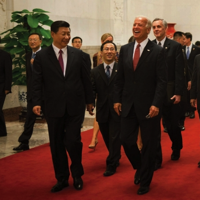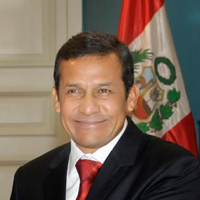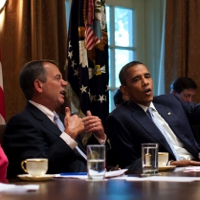
As the Libya operation enters what appears to be its final phase, the debate is only beginning as to what it portends for the future of U.S. policy and the international system as a whole. The course of events in Libya over the past months validates what I have termed the “just enough” doctrine. The Obama administration successfully resisted pressure — from Libyan rebels, European allies and domestic critics alike — to increase the U.S. role in order to achieve a faster outcome in Libya. If that doctrine takes on greater coherence, it could strengthen the arguments for limited, targeted […]








